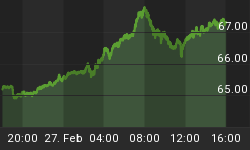Last week, the Bureau of Labor Statistics shocked economists and investors when it reported that 4,000 jobs were lost during August. Economists were expecting a gain of 100,000. This was the first reduction in the number of jobs since August 2003. Adding insult to injury, the government revised down June and July employment gains by a cumulative 81,000. It is also worth pointing out that the adjustment of the BLS called the "birth/death adjustment" has added 893,000 jobs this year. This is actually more than the 870,000 total jobs that the BLS reported were created this year. Last year, it accounted for almost half (1 million out of 2.3 million new jobs) and only one-third in 2005 (865,000 out of 2.5 million).
The employment situation is bound to get worse. Recently, Countrywide Financial announced that it will lay off 20,000 workers, which is about 20% of its staff. Challenger, Gray & Christmas reported that of the 80,000 announced layoffs in August, almost half (36,000) were from financial companies. Through August, financial companies have announced 103,000 layoffs. This is not far from the highest yearly total of 117,000 in 1993.
Construction jobs are also at risk. In August, 22,000 construction jobs were lost, bringing the year-to-date loss to 55,000. There does not appear to be any relief in sight for the beleaguered housing market. In fact, it might be taking another turn for the worse. Last week, the National Association of Realtors reported that pending home sales plunged 12.2% in July. Economists were expecting a drop of only 2.2%. Year-over-year pending sales were down 14.5% and are off 29% from the highs reached during the summer of 2005. It is even more discouraging considering this was July data, and was before the credit crunch gained momentum in August. Additionally, the National Association of Realtors further reduced its estimate of existing home sales this year and in 2008. Sales this year are expected to be 5.92 million, down from the previous estimate of 6.04 last month. Last year, there were 6.48 million exiting homes sold. At the beginning of the year, the trade group predicted that home sales would only decline to 6.42 million.
Third quarter earnings estimates decreased as the quarter progressed. According to Bloomberg data, third quarter earnings for the S&P 500 are expected to increase 3.7%, down from 5.7% at the beginning of the third quarter. The sectors with the largest negative revisions were consumer discretionary (-0.2% to -4.0%) and financial (5.7% to 0.3%). The drop in earnings in the consumer discretionary space is not surprising since the homebuilders and the automakers have been dragging down the group for several quarters. Earnings pressure has started to impact other sectors within the consumer discretionary space. Earnings for retailers are now expected to fall 3.9%, whereas just two months ago they were forecasted to increase 4.2%.
A lot has changed over the past six weeks and perhaps just since last Friday. The day before the employment report there was a 10% probability that the Fed wouldn't cut interest rates and by the end of July it was an 80% chance. Now it is virtually a sure thing. Looking forward to the end of the year, traders expect the Fed to cut rates to at least 4.75%. Last week, there was a 25% probability that rates would only get cut to 5.0%. The dispersion of expectations is as diverse as it has ever been in recent history. Based on fed fund futures and options, the overwhelming probability (53%) is that fed funds close the year out at 4.75%. The nest likely outcomes are 4.25% (17%) and 4.0% (13%).
Several years ago (quote itself dates it), I either wrote in this column or made the point to a colleague that consumers would quit spending when Household [International] stops giving them money. Household was purchased by HSBC in 2003. I was making the point that consumers were spending above their means and didn't show any inclination to stop. This behavior was always justified by the apparent strength of the household balance sheet. The problem with this justification was that the main asset for most consumers was the home and home prices wouldn't be able to support excess spending in perpetuity. As the savings rate kept dropping, it was apparent that consumers had no qualms monetizing their "assets" to supplement spending. This dynamic made it obvious that in order for consumers to slow spending the money spigot would have to get turned off and that consumers were not going to voluntarily step away. These latest developments seem to indicate we are either at that point in time or we are quickly approaching it. David Rosenberg, North American Economist for Merrill Lynch, published a note that said the probability a recession will start within the next four quarters is 75%. However, his own GDP forecasts don't forecasts a recession, but his forecast for the first and second quarters of 2008 are the lowest of 68 economists surveyed. Currently, Rosenberg forecasts GDP growth to slow to 0.4% and 0.5% during the first two quarters of next year. Median estimates are 2.7% and 2.8%, respectively. It is highly likely that those estimates will not be met.















